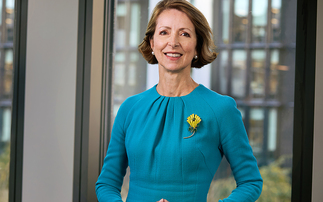
Sustainability is not just about environmental impact. For businesses, it’s also about building a company culture that supports long-term growth.
To do that, they need policies that both attract the right talent and create conditions that allow that talent to thrive as part of the team.
Diversity and inclusion are key to achieving this, particularly when it comes to appealing to and retaining younger workers.
More than eight in 10 millennials feel engaged and empowered by an inclusive culture, which in turn means businesses that prioritise inclusivity and diversity are twice as likely to meet or exceed their financial goals, according to recent insights from Deloitte.
Minding the gap
The good news is that the Covid-19 health crisis has accelerated the uptake of diversity and inclusion policies at many UK asset managers, with pandemic-related initiatives such as greater flexible working opportunities set to make it easier for female caregivers to prosper in their careers.
In recent years, a growing number of companies have also adopted "blind" recruitment practices, which involve removing tell-tale identifiers such as names and photos from applications to allow individuals to be judged on merit alone.
However, there is still plenty of room for improvement. Recent figures from Bloomberg put the gender pay gap in UK asset management companies at 29.4%, well over the 14.2% cross-industry average.
Its analysis also suggests that just 1% of asset managers are black, even though government figures show black people make up 13.3% of the population in London, the industry hub.
"Investing is still not mainstream," says Minali Majithia, Senior Marketing and Communications Manager at HSBC Asset Management.
"This lack of awareness limits the diversity of talent entering the asset management industry. Much work is being done to change this and we are seeing improved numbers in entry positions, but it will take time to represent equality in senior positions."
Making a difference
With mandatory gender pay gap reporting coming in on 5 October 2021, asset managers - like all companies - are under increasing pressure to lift the number of women in highly paid senior roles. There is also greater focus on ethnicity, LGBTQ+, and social diversity. Ethnic pay-gap reporting could come in as soon as 2023; and client expectations are evolving too.
"Increasingly, clients are expecting greater diversity in asset management businesses," says Majithia. "They value diverse organisations and investment teams and assess asset managers on how this drives their culture as well as how diversity of thought feeds into their investment processes."
Programmes designed to help include the recently launched 100BlackInterns, under which 200 firms took on at least one investment intern during summer 2021, and the Investment WeekWomen in Investment Awards celebrating talented women in the industry.
On an internal level, meanwhile, employers using a range of measures such as mentoring schemes and employee-led networks to address the issue.
"Mentoring and sponsorship are key tools," Majithia says. "Changing employee benefits such as shared parental leave, job shares, and flexible working hours will also help, as will having role models in senior positions from diverse backgrounds."
This article is part of a series of articles on diversity and inclusion, produced by Investment Week in association with HSBC Global Asset Management. You can find the full series on a dedicated hub here.
This post was funded by HSBC Asset Management.













